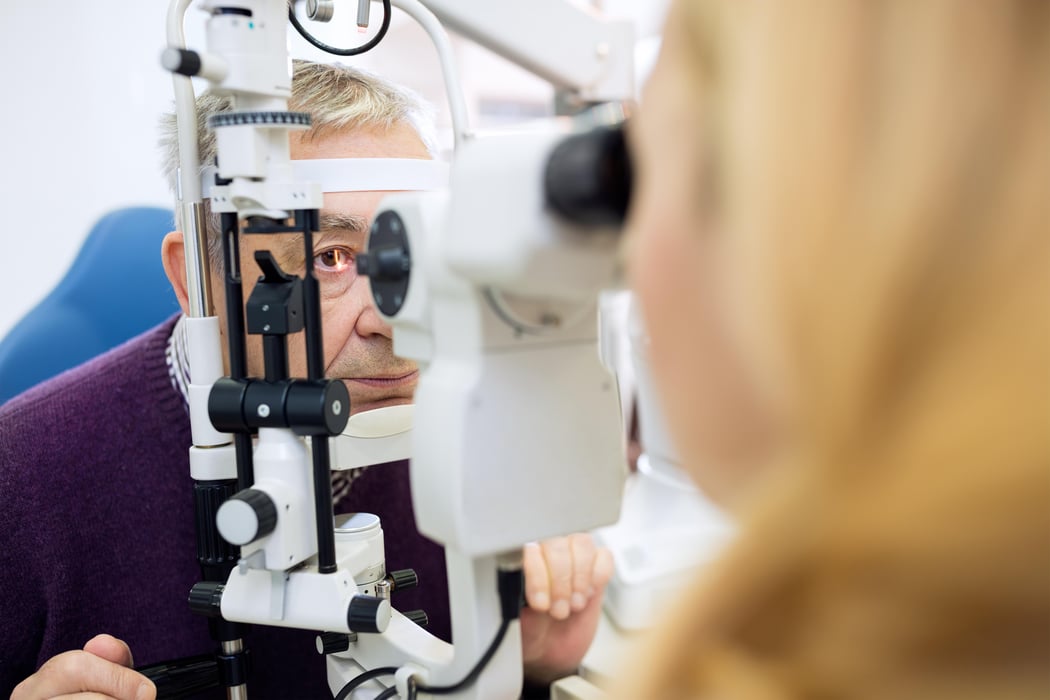Not Just for Glasses: Eye Exams Could Save Your Life

TUESDAY, Oct. 18, 2022 (HealthDay News) -- Eyes may be your window to good health.
Patient Barbara Krupar, a 65-year-old Ohio retiree, learned this firsthand.
Krupar made an appointment with her ophthalmologist after experiencing disturbing vision changes.
Dr. Nicole Bajic detected possible early warning signs of a stroke. She advised Krupar to go to the emergency room immediately to have her head and neck imaged.
At the hospital, the ER physician discovered that the carotid artery in her neck was 85% blocked, putting Krupar at imminent risk of suffering a stroke. The eye exam may have saved her life.
Exams can give view to some serious health conditions a person may be experiencing, including heart disease, diabetes, cancer, high blood pressure, multiple sclerosis, autoimmune diseases, sexually transmitted diseases and Alzheimer's.
These serious ailments can be detected in the eye because its blood vessels and nerves are reflective of the state of the rest of the body, according to the American Academy of Ophthalmology.
"Barbara's experience really highlights the importance of getting an annual eye exam," said Bajic, an ophthalmologist at the Cleveland Clinic and clinical spokeswoman for the American Academy of Ophthalmology.
"The best care is preventative care," Bajic said in an academy news release. "It's like getting your teeth examined every year. You want to see if something else is brewing."
The academy also offered advice for maintaining healthy vision and overall good health.
A heart-healthy diet full of leafy greens and colorful fruits is good for the eyes, the academy said. Foods rich in vitamins C and E, zinc, lutein, zeaxanthin and omega-3 fatty acids can lower risk of certain eye diseases, including macular degeneration, cataracts and dry eye.
Getting regular exercise can protect eye health, as well. The American Heart Association recommends 30 minutes of exercise a day.
Know your family history, including whether family members had macular degeneration and glaucoma. Share that information with your ophthalmologist.
Don't skip routine eye exams. Have a comprehensive eye examination by age 40 even if your vision seems fine. After age 65, get an exam every year or two.
The American Academy of Ophthalmology's EyeCare America program matches volunteer ophthalmologists with eligible patients in need of eye care across the United States.
Some seniors may be eligible for a free eye exam. They can visit EyeCare America online to check eligibility.
More information
The U.S. National Institute on Aging has more on aging and your eyes.
SOURCE: American Academy of Ophthalmology, news release, Oct. 13, 2022
Related Posts
Disability Payments Can Help Keep Veterans With Diabetes Out of the Hospital
FRIDAY, July 8, 2022 (HealthDay News) -- More disability payments led to fewer...
Night Sweats May Be Even Tougher Than Hot Flashes on Women
FRIDAY, Oct. 14, 2022 (HealthDay News) -- It’s not anyone's idea of a fun...
Houston Methodist Suspends Nearly 200 Workers Who Refuse COVID-19 Vaccines
THURSDAY, June 10, 2021 (HealthDay News) -- Nearly 200 employees of the Houston...
AHA News: ‘And Just Like That,’ Everyone Wondered: Is Exercise Safe?
WEDNESDAY, Dec. 15, 2021 (American Heart Association News) -- And just like...

